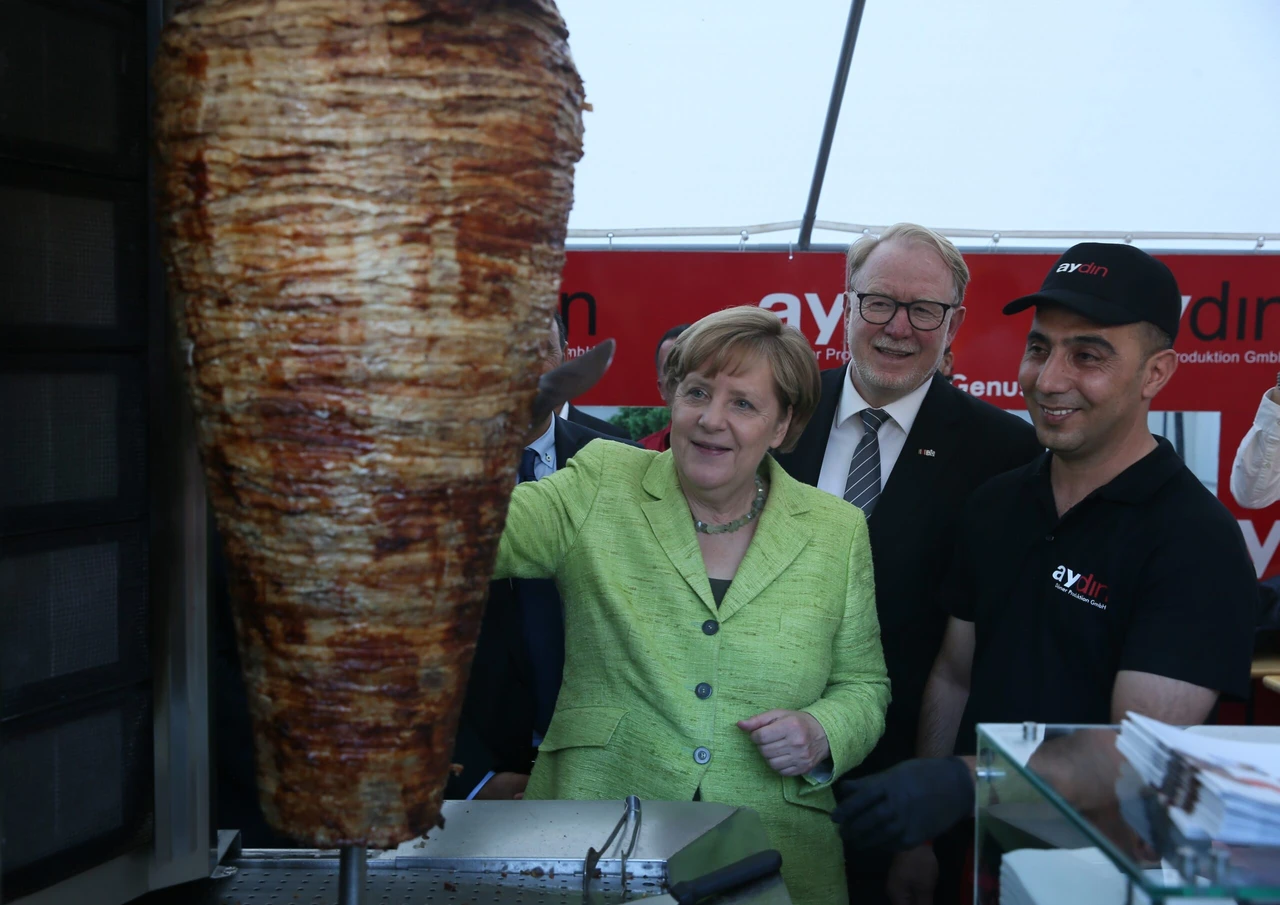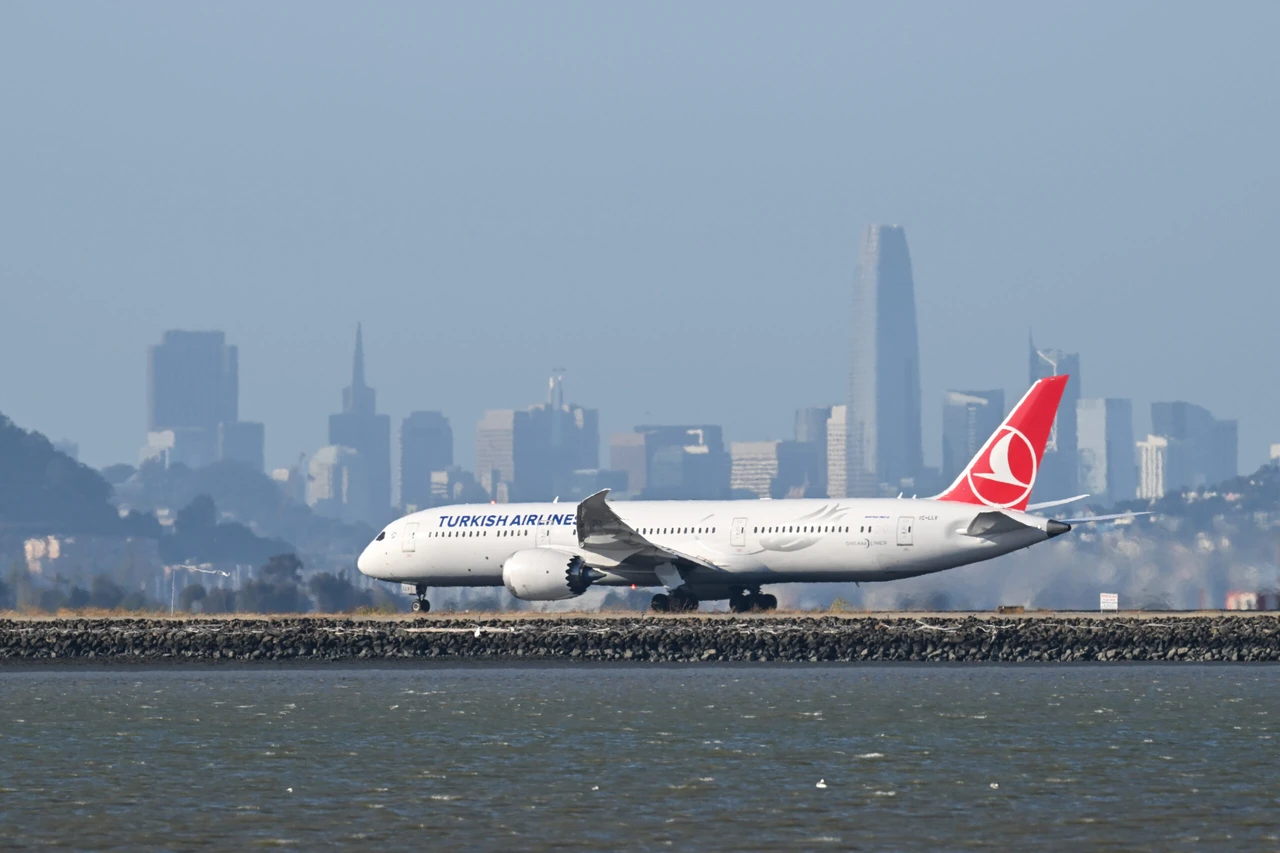Germany, Türkiye conflict: EU steps in doner kebab controversy
 German Chancellor Angela Merkel cuts pieces of Turkish doner kebab during her visit to the 42nd summer fest of the parliamentary "Working Committee for Mid-sized Enterprises" in Berlin, Germany on June 27, 2017. (AA Photo)
German Chancellor Angela Merkel cuts pieces of Turkish doner kebab during her visit to the 42nd summer fest of the parliamentary "Working Committee for Mid-sized Enterprises" in Berlin, Germany on June 27, 2017. (AA Photo)
A diplomatic row has erupted between Germany and Türkiye over food, with Berlin blocking Ankara’s bid to secure protected status for doner kebab within the European Union.
In April, Türkiye applied to the European Commission to register doner kebab. The move aimed to establish strict guidelines for the production of the dish, ensuring that only those adhering to specific methods and specifications could use the name. This process mirrors the recognition granted to culinary icons like Italy’s Neapolitan pizza and Spain’s jamon serrano.
Economic concerns
- Germany’s Federal Ministry of Food and Agriculture filed the opposition, insisting that the opposition reflects the concerns of German producers rather than government policy.
- German producers argue that the proposed regulations would impose unnecessary bureaucratic burdens and drive up the price of doner kebab, a staple food already facing inflationary pressures
- German kebab sales total around $7.63 billion annually, with one in three Germans consuming at least one doner kebab a month. The far-left Die Linke party has even called for a “doner price cap,” as prices have surged from $4.36 to $10.9 in some cities over two years.
Opinions and perspectives
“If Ankara’s application is successful, only beef and lamb horizontally sliced into cutlets with a thickness of 3-5 mm could be sold as a doner. Chicken cutlets could be thicker in the poultry variety, while ground meat would be banned entirely,” according to the Guardian.
The German Agriculture Ministry, led by Cem Ozdemir, a Green politician with Turkish roots, criticized the move, calling it an “intervention in the German market with a tangible economic impact.”
What’s at stake
The technical details specified in the application have caused friction between German and Turkish producers. Germany argues that the new regulations would impact local production, which includes younger animals and turkey meat, both excluded in Türkiye’s specifications. Compliance would also mean significant changes in production methods, potentially driving up costs.
The application, backed by the International Doner Federation in Istanbul, states that the dish is a vital part of Türkiye’s culinary heritage. Ingrid Hartges, head of the German Hotel and Restaurant Association, warned, “If Türkiye is successful in its registration attempt, the new rules would have catastrophic consequences for gastronomy businesses as well as consumers.”
Next steps
- The two countries now have six months to reach a compromise, facilitated by the European Commission.
- If no agreement is reached, the commission will make the final decision. Although Türkiye is not an EU member, third countries can register products for protection in the bloc.
- The doner kebab, introduced to Germany by Turkish immigrants in the 1970s, has become a cultural symbol. It is now Germany’s most popular street food, surpassing the traditional currywurst. The ongoing dispute reveals the cultural and economic significance of this beloved dish in both countries.



